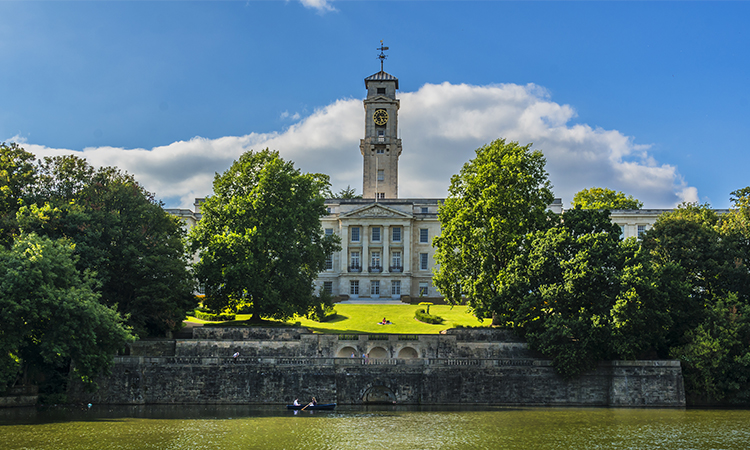University of Nottingham: £23.3m research funding means new treatments will be developed faster in Nottingham
£23.3m investment in world-leading in research in Nottingham has been announced today (14 October 2022).
The funding, awarded by the National Institute for Health & Social Care Research (NIHR), will mean the development of new treatments for common illnesses like asthma, Irritable Bowel Syndrome, depression and arthritis will be accelerated through the NIHR Nottingham Biomedical Research Centre over the next five years.
Professor Lucy Chappell, Chief Executive of the NIHR, said: “Research by NIHR Biomedical Research Centres has led to a number of ground-breaking new treatments, such as new gene therapies for haemophilia and motor neurone disease, the world-first treatment for Creutzfeldt–Jakob disease, a nose-drop vaccine for whooping cough, and the first UK-wide study into the long-term impact of COVID-19.
“This latest round of funding recognises the strength of expertise underpinning health and care research across the country and gives our nation’s best researchers more opportunities to develop innovative new treatments for patients.”
Professor Ian Hall, Director of the NIHR Nottingham Biomedical Research Centre, Professor of Molecular Medicine at the University of Nottingham, and a Respiratory Physician at Nottingham University Hospitals NHS Trust, explains how this funding will support vital new developments in treatments and medical technology for use in the NHS: “This is excellent news for our patients and for every patient living with some of the most common, but also the most debilitating health conditions in the UK today.
Professor Ian Hall – Director of the NIHR Nottingham Biomedical Research Centre, Professor of Molecular Medicine at the University of Nottingham, and a Respiratory Physician at Nottingham University Hospitals NHS Trust
“In the last five years the research done by the NIHR Nottingham Biomedical Research Centre has led to breakthrough treatments and diagnostics including our significant contributions to both COVID-19 and Long Covid research.
“This funding means that we will be able to find new solutions for people whose quality of life and life expectancy is significantly reduced by the impacts of mental health, respiratory, gastrointestinal, liver and musculoskeletal conditions as well as hearing loss. It will also significantly contribute to the development of Magnetic Resonance Imaging technologies for health, which is a cornerstone of our research programme in Nottingham”
The NIHR Nottingham Biomedical Research Centre (BRC) is led by internationally renowned scientists, researchers and clinicians from Nottingham University Hospitals NHS Trust and the University of Nottingham, together with expertise from Nottinghamshire Healthcare NHS Foundation Trust and a number of NHS and academic partners across the East Midlands.
First established in 2017, the role of the Nottingham BRC is to take discoveries from scientists in Nottingham, and other, world-leading universities, and develop them into new drugs and medical technologies to improve patient care. Since its launch, researchers from the NIHR Nottingham BRC have published over 3,000 papers and helped build the research community of the future by supporting around 400 trainees. As well as the funding awarded by the NIHR, the Nottingham BRC has also brought in a further £182m of external funding to support research undertaken by its research teams in the last five years.
The NIHR Nottingham BRC focuses on health problems where there is the greatest international, national, and local need, where the city of Nottingham is already leading the world in research. Today’s funding will support research for the next five years in the following areas:
respiratory disease;
gastrointestinal and liver disease;
hearing;
mental health and technology;
musculoskeletal, trauma, surgery and rehabilitation; and
magnetic resonance and precision imaging.
The new funding will start in December 2022 and will be used in a five-year research programme taking place up to 2027.

